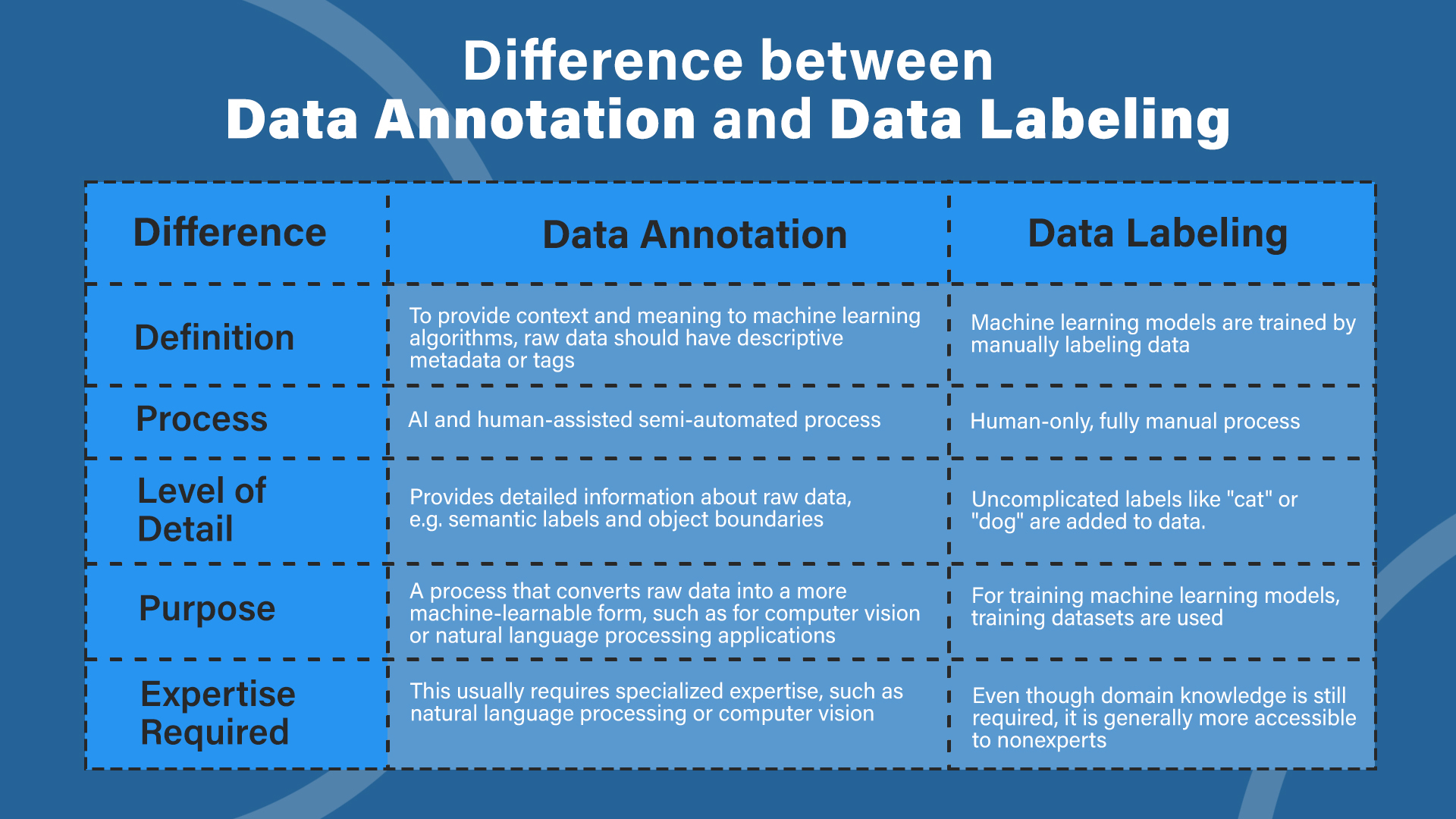
## The Role of Data Annotation in Enhancing AI-Driven Marketing Strategies
Data annotation may sound technical, but it’s the key ingredient behind effective AI-driven marketing strategies. In this article, we will explore how it amplifies AI marketing and how it can benefit your business.
Data annotation involves labeling data so AI can learn from it and make informed decisions. It’s like training a pet to respond better to commands; the better you guide it, the more effective it becomes. This process directly influences the efficiency of marketing strategies, and understanding it can lead to improved results for your business.
Curious about how data annotation can boost your marketing efforts? Stay tuned for some practical insights.
### How Data Annotation Enhances Marketing AI
Data annotation is essential for training AI models in marketing. Accurate labels help AI understand customer behavior and trends. Here’s how:
#### Customer Segmentation
Data annotation enables AI to comprehend customer characteristics, facilitating personalized marketing. It’s akin to designing a custom menu based on people’s preferences.
#### Product Recommendations
Labeled data allows AI to analyze past purchases and suggest relevant products, acting like a personal shopper who understands your style.
#### Sentiment Analysis
Annotated data helps AI assess customer emotions, improving marketing messages and overall experience. It’s like having a friend who always knows what you need to hear.
### Types of Data Annotation in Marketing
Different types of data annotation cater to various marketing needs. Knowing these types helps you select the right strategy:
#### Text Annotation
This involves labeling text for sentiment, keywords, or intent. It’s useful for chatbots and personalized email campaigns. Text annotation can also include categorizing customer inquiries to enhance customer service. For example, by labeling customer queries by topic, AI-powered support systems can efficiently direct customers to the appropriate resources.
#### Image Annotation
Images are labeled for objects, products, or customer preferences, aiding visual marketing. Image annotation helps AI recognize specific visual elements, such as product logos or customer demographics, enabling tailored advertising. For instance, annotated images can help AI identify customer interests based on visual preferences, enhancing ad targeting.
#### Audio Annotation
Audio data is annotated for keywords or emotions, improving voice assistants and customer service. Audio annotation allows AI to understand spoken language better, enhancing voice-based marketing channels. For example, by labeling customer calls with keywords, businesses can analyze feedback and identify trends or issues that require attention.
### Best Practices for Data Annotation in Marketing
Effective data annotation is crucial for successful AI marketing strategies. Here’s how to do it right:
#### Quality Control
Regularly check annotations for accuracy to maintain high quality.
#### Consistency
Use clear guidelines to ensure consistent annotations across your dataset.
#### Scalability
Plan for scalable annotation processes to manage growing data volumes.
Boost your AI projects with precise data labeling operations to ensure high-quality, accurately labeled data. This will enable your AI-driven marketing strategies to achieve exceptional results.
### Challenges in Data Annotation for Marketing
Data annotation presents its own set of challenges. Here’s how to address them:
#### Cost
Annotating large datasets can be expensive. Outsourcing or using annotation tools can help control costs.
#### Time
Annotation is time-consuming. Efficient workflows and automation can expedite the process.
#### Human Error
Inaccurate annotations hinder AI performance. Training and quality checks minimize errors.
### Real-World Applications of Data Annotation in Marketing
The benefits of data annotation in AI-driven marketing are clear. Let’s examine some real-world examples:
#### E-commerce
Online retailers use annotated data for personalized recommendations, boosting sales and customer satisfaction.
#### Social Media
Annotated data helps brands understand customer sentiment and tailor their strategies accordingly.
#### Healthcare
Annotated patient feedback helps healthcare providers improve services and communication.
### Conclusion
Data annotation propels AI-driven marketing by enhancing customer segmentation, improving product recommendations, and enabling sentiment analysis. By adopting best practices, businesses can overcome challenges and leverage AI for successful marketing.
Incorporating data annotation into your strategy can lead to improved customer experiences and increased sales. Understanding the types, best practices, and real-world applications can help you make informed decisions for your business.
## FAQs
### What is data annotation in marketing?
Data annotation in marketing involves labeling or categorizing data so AI can learn from it and make better decisions. It helps AI understand customer behavior and preferences, leading to more personalized and effective marketing strategies.
### Why is data annotation important for AI marketing?
Data annotation is crucial because it helps AI models learn and improve. Accurate data labels enable AI to recognize patterns, segment customers, and personalize recommendations, enhancing marketing effectiveness.
### What types of data can be annotated for marketing purposes?
Various data types can be annotated, including text, images, and audio. Each type serves different marketing needs, such as customer segmentation, sentiment analysis, and product recommendations.
### How can businesses handle the challenges of data annotation?
Businesses can manage the challenges of data annotation by focusing on quality control, consistency, and scalability. They can also control costs and time constraints by outsourcing or using annotation tools, while regular training and quality checks help minimize errors.
### How does text annotation benefit customer service?
Text annotation benefits customer service by categorizing customer inquiries to improve response efficiency. By labeling queries by topic, AI-powered systems can quickly and accurately direct customers to the appropriate support resources.
### Can image annotation improve ad targeting?
Yes, image annotation can enhance ad targeting by recognizing specific visual elements such as product logos or customer demographics. This allows businesses to create tailored advertisements based on visual preferences, improving engagement and conversion rates.
### What role does audio annotation play in voice-based marketing?
Audio annotation is significant in voice-based marketing as it allows AI to understand spoken language better. By labeling audio data with keywords or emotions, businesses can analyze customer feedback, identify trends or issues, and improve the effectiveness of voice assistants.
By leveraging precise data annotation techniques across various forms of media—text, images, and audio—businesses can significantly enhance their AI-driven marketing strategies, leading to improved customer experiences and higher sales.
[Learn more about wireless earbuds with extended battery life](https://lonelybrand.com/blog/wireless-earbuds-extended-battery-life/).
